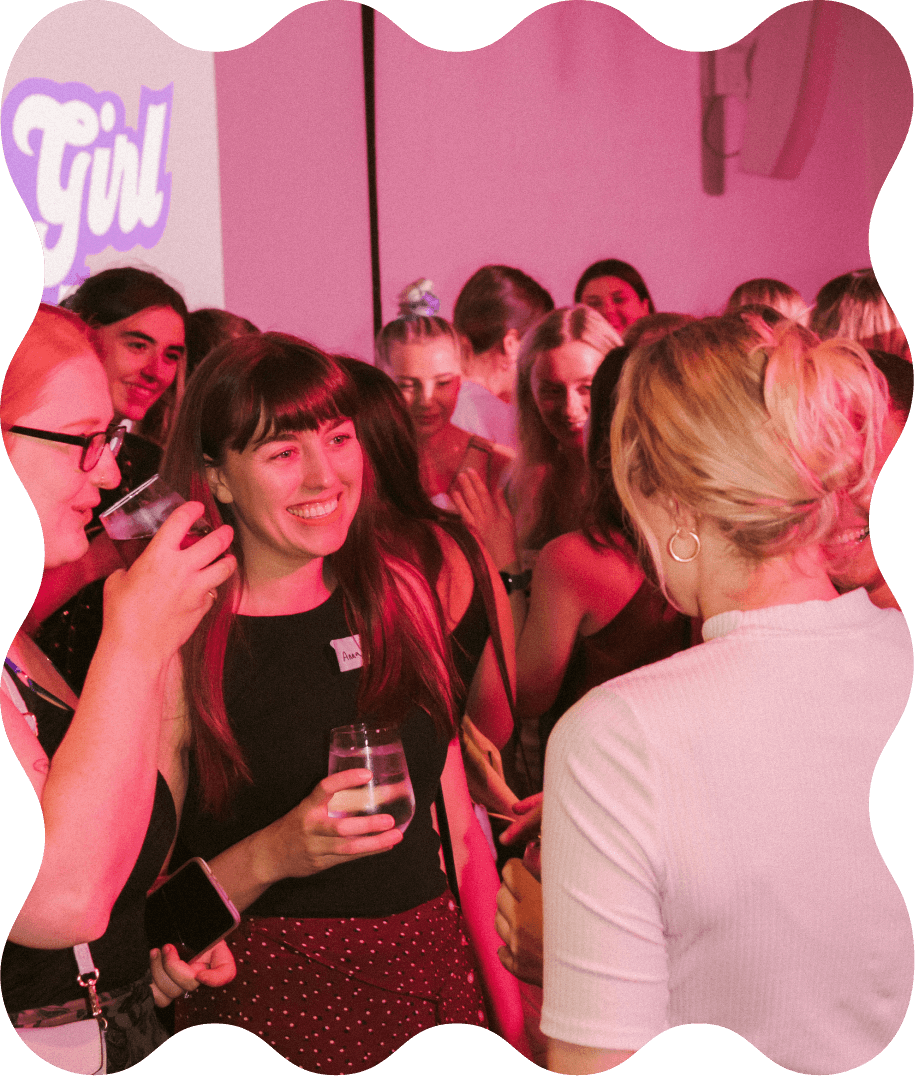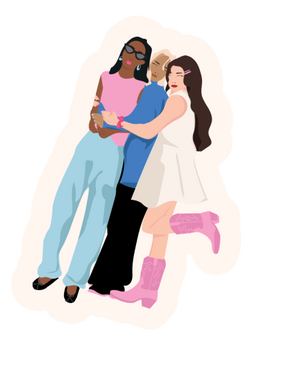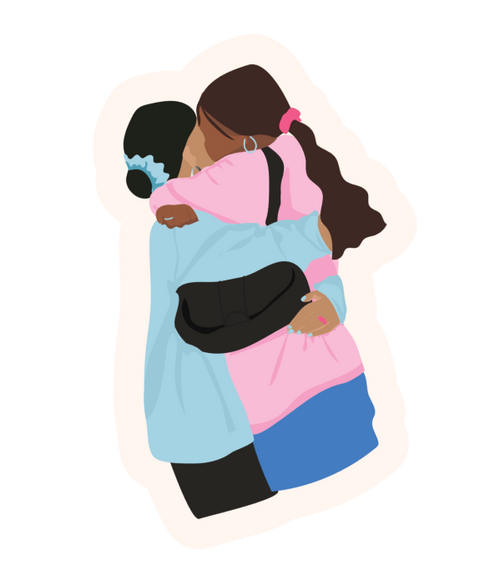If you had told me five years ago that I’d be advocating for sober curiosity and turning down drinks in my twenties, I would have laughed all the way to the pub. My teenage years – like many others – were booze filled and barely memorable. Growing up in a small town, it felt like a rite of passage to throw up in fields, pass out at parties, and pre-drink on the bus.
After my first year at university, the golden glow of alcohol started to fade. I was suddenly kept company by anxiety and depression, who do not make for very good drinking buddies. Alcohol didn’t make me feel limitless, it made me feel small but at that time, going sober in your 20’s was an unpopular thing to do. Whilst this is starting to change, people still do question why anyone would stop or drastically cut down on their drinking so young?
In our 20s it’s expected that we will be drinking more now than at any point in our lives. Whether we are studying at university or working full time, the social pressure to drink is enormous. We are young and free. Well, if free means spending our salary on craft beer, not free to actually do what we want – don’t be silly! Adverts and pop culture have painted the picture that being in our 20s and drinking regularly are synonymous.
Re-evaluating your relationship with alcohol in your 20s
Despite the nagging persistence of drinking culture in the UK, there is a subculture of people who are breaking up with booze in their twenties (me included!). Being sober might be a full time commitment, an occasional choice, or something they are curiously exploring. However, sobriety isn’t one size fits all and there are lots of reasons why someone might go sober in their twenties. Perhaps you’ll identify with one of them?
Health is wealth
To begin with, today’s young people are more health conscious than previous generations. Instead of going for drinks after work, they are heading to the gym with their mates. Instead of drinking dirty pints at parties, they are sipping smoothies at vegan cafes.
There is no denying that alcohol has always been bad for our health, but this generation is more aware of it thanks to accessible scientific research and social media. We are empowered to make informed decisions about what we put in our body, which for some people means avoiding alcohol and reaping the health benefits of sobriety.
Your body isn’t the only thing that’ll thank you for drinking less, your brain will be quite pleased too. Alcohol can make your thoughts and feelings bubble up and spill out in weird ways. Which might be fun if you are blessed with good mental health, but for those of us living with mental illness, it can be a nightmare. Your twenties is rife with anxiety at the best of times, so why make that worse with crippling hangxiety, after one-too-many beverages? Or in my case, feeling anxious after two drinks and having to find a nice quiet spot to cry, before returning to perform social norms again.
Whether it’s a trigger for anxiety or sends them spiralling into depression, more people in their twenties are prioritising their mental health over booze. Feeling euphoric when you drink, only to feel deflated and unhappy the next day just doesn’t seem worth it. As society becomes more accepting of mental health, it also becomes easier to go sober. Rather than use alcohol as an emotional crutch, people are choosing to nurture their mental health. Unlike previous generations, instead of staying at the pub and drinking through our feelings, we can just talk about them.
Welcome to regret city
A little bit of hangxiety might be manageable, especially when you have nothing to be worried about. But what happens when you do have something to worry about? When you were 18 you could laugh off your drunken behaviour as “not knowing how to handle your drink”, but after 21 that excuse doesn’t sound so cute. To avoid the spiralling shame of drunken antics, people in their twenties are choosing to drink less or stop drinking completely.
Being drunk doesn’t seem so fun when you’ve pissed off your best friend, flirted with your work colleague, and lost your phone. Waking up and wondering what you did or said can be embarrassing at the best of times, or scary at the worst. Not remembering anything, and having to piece together the night from other people can leave you feeling vulnerable. Your memory and a good chunk of your self-respect can vanish overnight, like the world’s worst magic trick.
For some people, it took hitting rock bottom to make them throw booze in the bin. One terrible night of going overboard, when drunk-you tried to ruin your life (mine’s called Dilda and we don’t know her anymore). Whether you put yourself in danger, embarrassed yourself beyond repair, or treated the people around you terribly – it can feel like alcohol has betrayed you, or perhaps you’ve betrayed yourself. Rather than give alcohol another chance to sabotage them, people are boldly embracing sobriety.
It’s not me, it’s booze
Sure, one bad night can be enough to make you rethink the drink, but for some people it’s a gradual realisation over time. Growing up in the UK means that drinking problems are very British-ly swept under the rug. Alcohol dependency is normalised, especially amongst young people. Despite this, some people in their twenties are calling out their own problematic drinking and doing something about it.
Through personal reflection, the right support, and of course a great deal of courage, people are re-evaluating their relationship with alcohol. If you depend on alcohol to socialise, no matter the occasion, then perhaps it’s time to shed the beer jacket and become comfortable in your own skin. If you plan on having one drink but always have more, then it might be better to never have the first drink. In the cases when alcohol brings more bad than good in someone’s life, then cutting out alcohol isn’t just a choice it’s a necessity.
Better things to be doing
Contrary to popular opinion, people in their twenties have interests beyond Instagram and avocado toast. Interests which are more important than alcohol. Turns out when you stop spending £30 every Friday at the pub, you have more time and money to spend on hobbies. For some people, drinking isn’t a priority in their life, they’d rather be at the theatre, or cycling, or traveling, or crafting, or, well anything but drinking. Quite frankly, people have better things to be doing than wasting their time feeling hungover.
And even if you like a drink, there is no escaping that these days you have to take out a small loan, or sell your soul to a witch to afford a decent night out. Money is precious to people in their twenties, especially if we ever want to escape the world of paying extortionate rent for dilapidated properties. Drinking is expensive. So plenty of young people are cutting back on booze in an attempt to save money, whether that’s for a house or to buy their soul back from that witch.
Whilst it might shock someone to picture people in their twenties making responsible decisions about their life, I must remind you that we are indeed grown humans. Humans who would like financial security, a house we can’t be kicked out off, and for some of us – a family. Alcohol doesn’t always fit into this vision. For those who want children in their twenties, having a drink might not be possible. There are plenty of young mums who are sober whilst their friends are still knocking back pints.
It takes strength to go sober
There are so many valid reasons not to drink. Whether you’ve always been sober, have recently become sober, or are sober some of the time. Choosing to live your life without alcohol, no matter how that looks, is a brave decision and a personal choice. When society is screaming at you to – work, drink, regret, drink, work, repeat – like an angry personal trainer, it takes a lot of strength to turn your back on alcohol.
Thankfully, the tide is turning on alcohol. The number of sober role models and celebrities increases every year, and their voices are amplified by social media. Instead of seeing alcohol as glamorous and harmless, people in their twenties see the sinister side of spirits. We see people we relate to sharing their sober stories, and we are empowered to start our own journey. Sobriety in any shape can feel isolating, but social media offers the comfort of alternative communities who support and celebrate your sobriety.
Sobriety is no longer shrouded in so much stigma. Anyone can make the decision to change their relationship with alcohol, even if – like me – you don’t want to cut it out entirely. But, if you do want to cut it out entirely? Don’t do it alone. Reach out to friends, family and professional support. Follow the right role models on social media, and most importantly believe in yourself. Going sober isn’t always easy, but you can be comforted in knowing that you aren’t the odd one out. There are plenty of people in their twenties who don’t drink, and every day someone, somewhere, is drinking their last pint.
Written by Tilda Fraser
Tilda Fraser runs Human Beans, a site run by Tilda Fraser, which explores the politics of being human. The content of this post was adapted from the original post over at Human Beans and was written with the help of eight wonderful contributors who shared their unique stories of sobriety.












